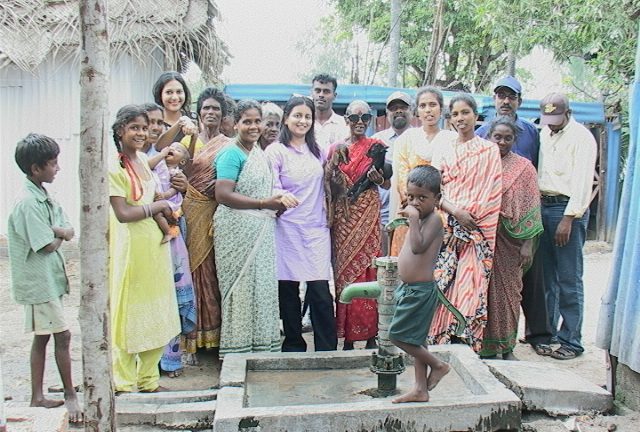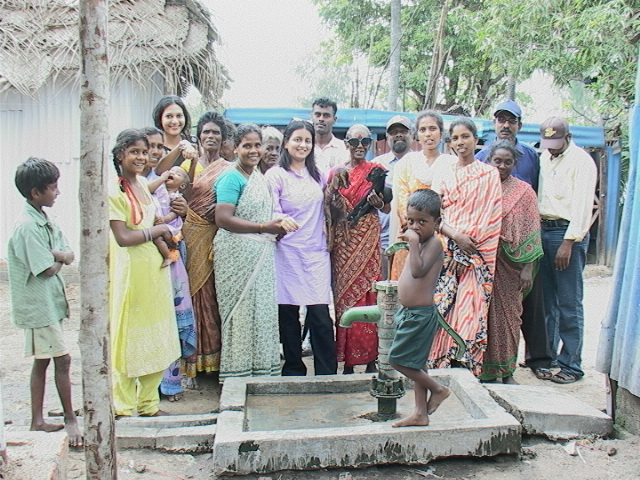
Tsunami Rehabilitation
26 December, 2004 will always be remembered as Black Sunday, when 2,30,000 lives across 14 countries were lost in the Indian Ocean tsunami, with 18,000 of these deaths in South India. Coastal communities were in a state of shock as family members died or went missing, while agricultural land, salt pans, fishing boats and homes were swallowed whole. It is estimated that nearly 9,00,000 people were affected in the three most badly-hit districts in Tamil Nadu – Nagapattinam, Cuddalore and Kanyakumari.Once the Indian government provided emergency relief supplies to the areas that bore the brunt of the tsunami, they also issued a mass media appeal for counselors who could provide psychological support to the disaster victims who experienced severe post-traumatic stress. OfERR recognized that the time had come to return the kindness shown by Tamil Nadu to Sri Lankan refugees, by rising to the occasion and helping those whose lives were shattered by the catastrophe.
OfERR volunteers plunged into the ‘Refugees to the Rescue’ mission wholeheartedly and traveled to the worst-hit areas to not just provide psychological guidance to the survivors but also conduct extensive relief work. OfERR repaired thatched roofs and replaced tar sheets, doors and interiors, constructed temporary shelters, toilets, bathing enclosures and sheds, distributed fire buckets for emergencies and made significant improvements to the water and sanitation situation in these villages.In the immediate aftermath of the tsunami, refugee volunteers from OfERR provided food supplies to 44,919 people, conducted medical camps for 8,883 people and awareness programs on livelihood restoration, health safety, solar energy and home gardening for 16,243 people. OfERR also coordinated relief efforts with the Minister of Finance, Tamil Nadu, the Senior Secretary overseeing rehabilitation work, the Joint Director of Health Services, panchayat leaders and Additional Collectors in these districts to pool resources and avoid wastage.
- • 18,000 families were given medical care, information on water and sanitation, communicable diseases and environmental care. These families were also given support in restoring their lost government documents
- • 22,000 tsunami affected students were provided educational assistance in partnership with school authorities to prevent dropouts and improve academic performance by conducting additional coaching in OfERR-run tuition centers and distributing free school supplies and uniforms
- • 35,000 women were inducted into self-help groups or encouraged to reactivate existing self-help groups – livelihood and skills training were imparted to these women alongside other useful modules such as home gardening
- • 15,000 youths were given vocational training in computers, tailoring, communications, leadership and personality development
- • Awareness programs on a continual basis on HIV/STI/TB prevention, and on developing human capital through education and women’s empowerment particularly in vulnerable and low-income communities were conducted

The work done by OfERR in tsunami villages not only benefited thousands of these families but also marked the beginning of a new journey for the organization itself – a journey where Sri Lankan Tamils came full circle by repaying the Indian government and its people for their compassion towards refugees since 1984.


